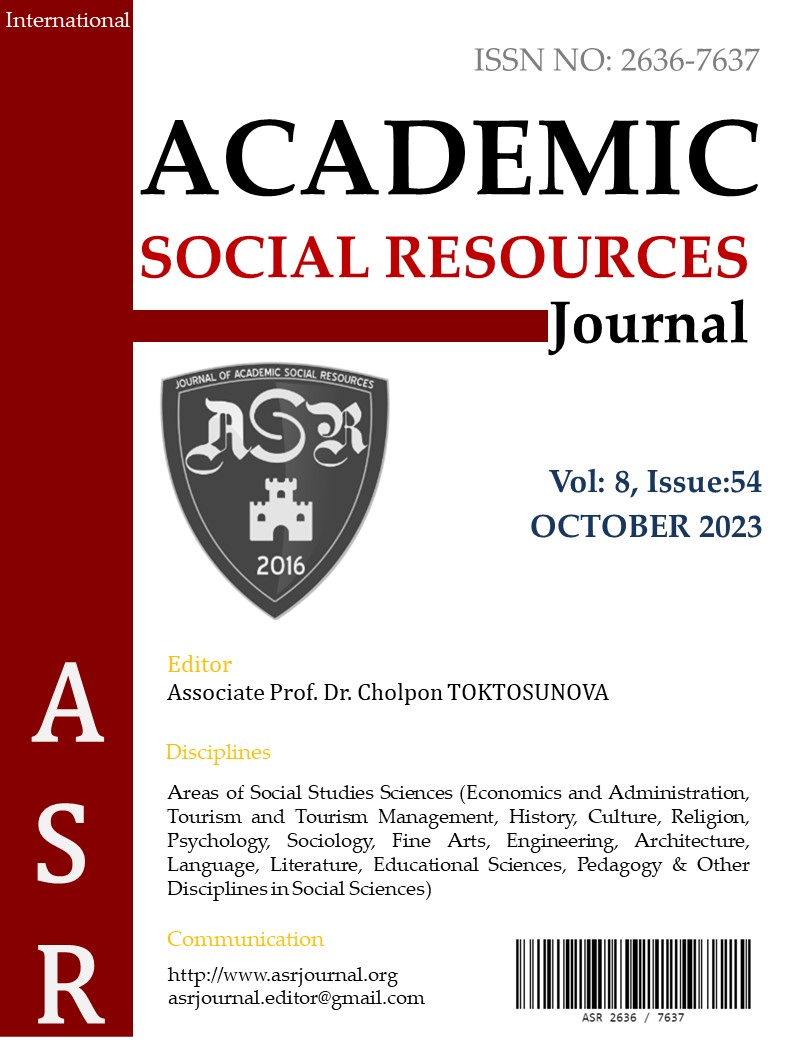Author :
Abstract
Bu çalışmanın amacı öğretmenlerin mesleki gelişiminde mentörlük programlarının rolü ve etkinliğinin değerlendirilmesidir. Bu çalışmanın yöntemi belirlenirken nitel araştırma tekniklerinden fenomenoloji deseni tercih edilmiştir. Araştırma grubu, amaçlı örnekleme yöntemlerinden biri olan maksimum çeşitlilik örnekleme stratejisi kullanılarak seçilmiştir. Bu yöntemle araştırmaya dahil edilen 12 öğretmen araştırmanın çalışma grubunu meydana getirmektedir. Verilerin toplanmasında yarı yapılandırılmış görüşme formu kullanılmıştır. Veriler içerik analizi kullanılarak analiz edilmiştir. Öğretmenlerin ifadeleri, mentörlük programlarının öğretmenlerin mesleki gelişimine ve öğrenci başarılarına olumlu katkı sağladığını vurgulamaktadır. Bu programlar, özellikle yeni öğretmenler için hayati bir rol oynamakta, deneyimsizliklerini aşmalarına ve öğretim becerilerini geliştirmelerine yardımcı olmaktadır. Ayrıca, mentorların sahip olduğu deneyimler, öğretmenlere önemli konularda rehberlik yaparak öğrenci başarılarına olumlu katkıda bulunmakta ve öğretmenler arasında işbirliği kültürünü teşvik etmektedir. Mentörlük programları, öğretmenlerin motivasyonunu artırarak, daha motive öğretmenlerin öğrencilere daha fazla çaba harcamalarını teşvik etmekte ve bu sayede öğrenci başarılarını artırmaktadır. Sonuç olarak, mentörlük programları, öğretmenlerin mesleki gelişimlerini destekleyerek eğitim kalitesini yükseltmektedir.
Keywords
Abstract
The purpose of this study is to evaluate the role and effectiveness of mentoring programs in the professional development of teachers. While determining the methodology of this study, phenomenology design, one of the qualitative research techniques, was preferred. The research group was selected using the maximum diversity sampling strategy, which is one of the purposeful sampling methods. The 12 teachers included in the research with this method constitute the study group of the research. A semi-structured interview form was used to collect the data. The data were analyzed using content analysis. The teachers' statements emphasize that mentoring programs contribute positively to teachers' professional development and student achievement. These programs play a vital role especially for new teachers, helping them overcome their inexperience and improve their teaching skills. Moreover, the mentors' experience guides teachers on important issues, contributing positively to student achievement and fostering a culture of collaboration among teachers. Mentoring programs increase teachers' motivation, encouraging more motivated teachers to put more effort into their students, thereby increasing student achievement. In conclusion, mentoring programs improve the quality of education by supporting teachers' professional development.





